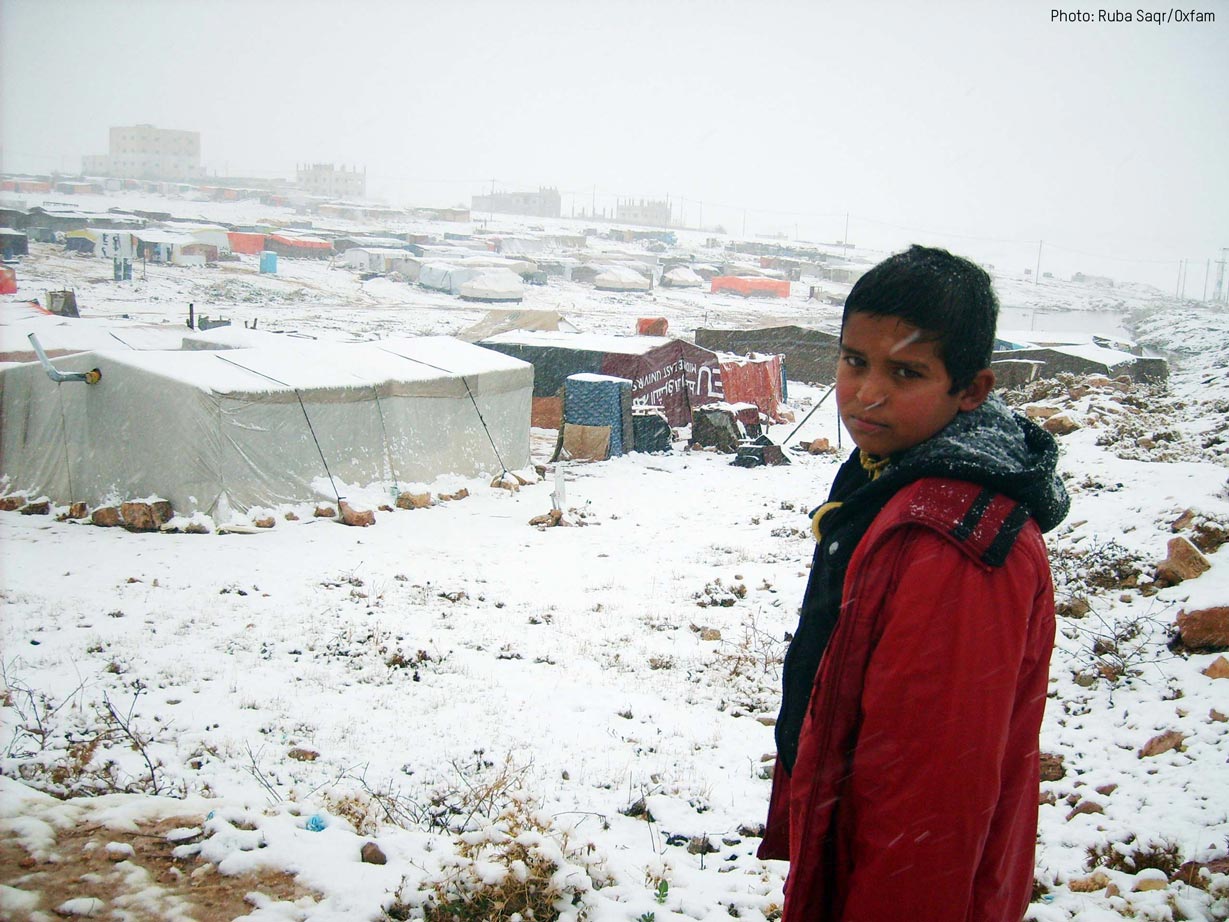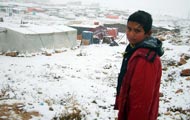
While Australia is in the midst of a hot summer, tens of thousands of Syrians forced to flee their homes are struggling through a long, bitterly cold winter – the worst to hit the Middle East in decades. Oxfam is there providing support to over half a million refugees.
Written by Vanessa Parra – humanitarian press officer at Oxfam America. She is currently based in Beirut, Lebanon. First published by Oxfam America
I left for Beirut just as the snow was starting to fall in DC and my fellow Washingtonians were prepping for a cozy Sunday at home. I was flipping through photos on Facebook and everyone was posting updates of their kids building snowmen and hot cocoa being made—the kinds of things we usually associate with winter storms in the US.
The impact of this storm here in Lebanon could not be more different. Lebanon is home to nearly 1 million Syrian refugees. In fact, Syrians now account for one-quarter of Lebanon’s entire population. Nearly 80 percent of these refugees live in overcrowded apartments, abandoned buildings, informal settlements, and—as you see in the photo below—sprawling tent communities that are jammed into any vacant lot.
Syria’s refugees are facing the very worst that winter can bring without the ability to keep themselves warm, well-fed or healthy. Some families came over with some savings, but for the most part they’ve had to spend through their supplies to get food, clean water, and whatever limited shelter they can scrounge together.
What does that mean? Imagine if your whole family lived in a tent with only a thin sheet of plastic between you and the snow and rain. To make things worse, many fled Syria in the summertime, so they don’t have adequate clothes to face the rapidly dropping temperatures.
While I missed the worst of the storm in DC, I arrived in Lebanon as the first of many major winter storms walloped the Bekaa Valley, home to more than 200 informal camps. Thousands of families are cold, hungry and jobless—desperate for the long, bloody conflict in Syria to end. Winter has hit hard and widespread hunger, malnutrition, and disease are feared inside Syria as well as in refugee communities. Flimsy tents are prone to flooding and are likely to collapse under the weight of snow. Innocent children will be among the hardest hit. And winter has a long way to go.
Still, efforts to help are making a difference. Oxfam has distributed blankets, sheets of plastic to protect shelters, and vouchers for heating stoves, fuel, and food, helping families get what they will need to get through these harsh months. And as the BBC recently reported, the UN High Commissioner for Refugees (UNHCR) said it was “working harder than ever” to protect the Syrians sheltering in Lebanon.
Later this month, UN-sponsored peace talks in Geneva offer the best hope yet for a political solution to this crisis. But even with a positive outcome to the talks, it will likely be months, if not years, before Syria is rebuilt and refugees can return home. In meantime, Oxfam is on the ground in Syria, Jordan and Lebanon, delivering life-saving essentials, and we’re making great progress thanks to our supporters. Overall, we’re helping a half-million people affected by the Syria crisis across Syria, Lebanon and Jordan, with plans to reach more than 650,000 people in the next 3 months. But we must prepare for the long haul to ensure that ordinary Syrians are able to face these immense hardships until a time when they can return home to rebuild their lives.

Your support will help save lives in Syria through the bitterly cold winter.